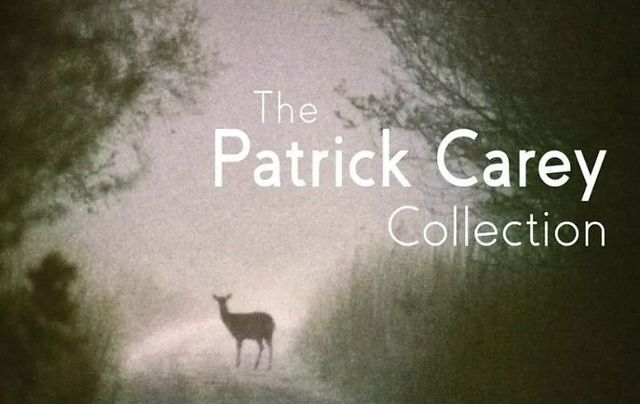Patrick 'Paddy' Carey was an Oscar-nominated, BAFTA-winning filmmaker. His films of Ireland, culture, landscape, and nature are newly-digitized at the Irish Film Institute.
Patrick ‘Paddy’ Carey was born in London in 1916. In 1923, his family moved to Dublin where he later studied painting at art school before returning to London. Carey began to work as a photographer and cameraman on nature programmes and documentaries both nationally and internationally, including documenting Edmund Hillary’s Everest descent in 1953.
Read More: WATCH: Vintage footage of First Holy Communion in 1930s Ireland
Carey moved to Canada with his wife Vivien to avail of documentary production opportunities offered by the National Board of Canada. He was hired as a cinematographer on the Oscar-nominated and BAFTA-winning "Journey into Spring" (1957) and on the Oscar-nominated "The Living Stone" (1959).
He would continue to work as a second unit camera operator throughout his life on films such as Stanley Kubrick’s "Barry Lyndon" (1975) and "Black Beauty" (1971) as well as second unit director on Fred Zinnemann’s "A Man For All Seasons" (1966).
In the early 1960s, Carey returned to Ireland and established Aengus Films with Vivien in 1964. He filmed and directed primarily short, pictorial, landscape films commissioned by the Department of External Affairs.
His first film, "Yeats Country" (1965) achieved huge international recognition and was nominated for an Academy Award in 1966. This was followed by a series of lyrical and evocative films depicting the landscape, flora, and fauna of Ireland.
Carey returned to Canada in the early 1970s and continued to work in Britain, Ireland, Canada, and the United States for the rest of his life.
Read More: WATCH: Take a tour of 1969 Ireland with "Céad Míle Fáilte"
The IFI says that Paddy Carey’s observational and reflective work was filmed with the eye of a practised artist. Mesmerizing close-ups of eddying rock pools, crashing waves, misty mountain peaks, and breath-taking sunsets are presented without geographic specificity. The films do not follow an educational form more common in recent nature documentary. Many are non-narrated with soundscape provided simply by remarkable audio recordings of nature, and, occasionally, scores by Irish musicians such as Brian Boydell and Paddy Moloney of The Chieftains. Locations are unpopulated and largely devoid of signs of human intervention in a romantic projection of Ireland which begs further appreciation and respect for the landscape.
Seven of Carey’s works are included in the Irish Film Institute’s Patrick Carey Collection, which can now be viewed on the IFI Player:
- Beara, a study of the Beara Peninsula
- Reflections - Ireland, a look at the traditional, rural daily life in Ireland
- Waves, the relentless landscape of the west of Ireland
- Oisín, the tale of the son of Celtic warrior Fionn MacCumhaill
- Mists of Time, about Ireland’s pagan festival Samhain and megalith tombs
- Errigal, about a battle of Donegal mountains
- Yeats Country, a commemoration of the centenary of the birth of William Butler Yeats
Below, you can watch Patrick Carey's "Reflections," which is published with thanks to the Irish Film Institute (IFI), who IrishCentral have partnered up with throughout 2020 to bring you a taste of what their remarkable collection entails. You can find all IrishCentral articles and videos from the IFI here.
To watch more historic Irish footage, visit the IFI Player, the Irish Film Institute’s virtual viewing room that provides audiences around the globe free, instant access to Irish heritage preserved in the IFI Irish Film Archive. Irish Culture from the last century is reflected through documentaries, animation, adverts, amateur footage, feature films, and much more. You can also download the IFI Player Apps for free on iPhone, Android, Apple TV, Amazon Fire TV, and Roku.
IrishCentral has partnered up with the IFI throughout 2020 to bring you a taste of what their remarkable collections entail. You can find all IrishCentral articles and videos from the IFI here.




Comments